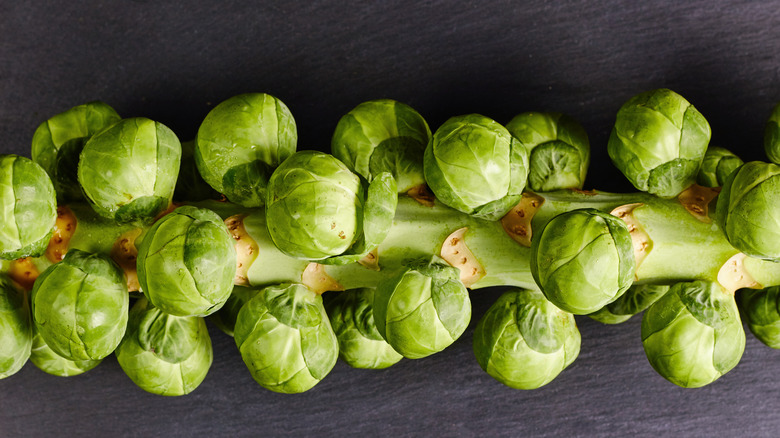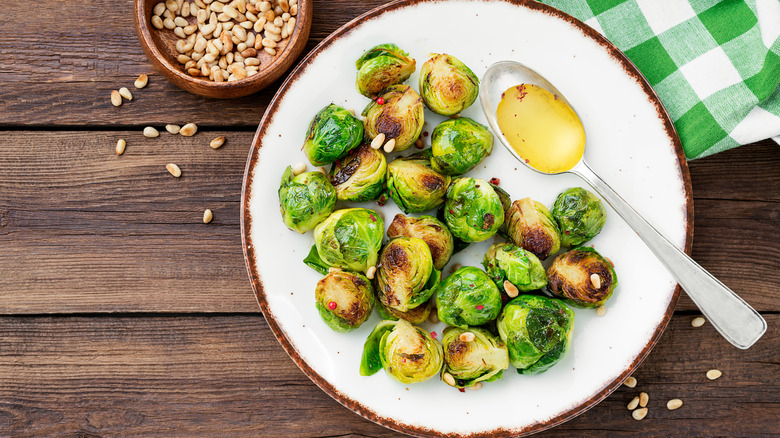Are Brussels Sprouts Actually From Belgium?
Brussels sprouts used to have a less-than-stellar reputation. Steve Bontadelli, Santa Cruz County Farm Bureau's 2018 Farmer of the Year, is a big name in Brussels sprouts, and he told NPR, "A lot of people of my generation hated them," adding, "Their moms boiled them and made them even stinkier." The Brussels sprout's star is ascending, though, thanks in part to the work Dutch scientists did to determine which varieties of Brussels sprouts are less bitter, NPR explains. In the 1990s, researchers in the Netherlands searched seed banks for older, less bitter varieties of Brussels sprouts, spending years cross-pollinating the older varieties with newer ones with higher yields. They were successful, and the Brussels sprouts we eat today are tastier than the ones we used to avoid.
So we have Dutch scientists to thank for palatable Brussels sprouts, but that doesn't answer the question of the sprouts' origin. Where did our newly popular vegetable-du-jour get its name? When you whip up a batch of Maple Bacon Brussels Sprouts, are you featuring a vegetable that really came from Belgium, or are the little green heads deceptively named?
Brussels sprouts take their name from exactly where you'd expect
According to Wisconsin's Department of Public Instruction (DPI), Brussels sprouts really do take their name from Brussels, Belgium, where they were believed to have been grown as early as the 13th century. Brittanica adds the first written record of Brussels sprouts, which are part of the cabbage family, dates to 1587. Wisconsin's DPI notes the vegetable resembling a tiny head of cabbage was named the Brussels sprout by the French, who introduced the sprout to the U.S. in Louisiana around 1800.
Food Print reveals most Brussels sprouts in the U.S. are now grown in California. Farmers like Steve Bontadelli are finally able to cash in on a crop that hasn't always been a profitable one. He told NPR, "Lo and behold, all of a sudden we're on cooking shows!" Bontadelli said his dad can't believe farmers now fetch four to five times as much for Brussels sprouts as they used to. As of 2019, there were 10,000 acres of land in the U.S. dedicated to growing Brussels sprouts, with more acreage opening up in Mexico to extend the availability of the new culinary darling.
In addition to the new varieties of Brussels sprouts that are less bitter, we also know Brussels sprouts shouldn't be overcooked, Food Print points out, so they don't release the stinky sulfur compounds we used to abhor. Now, there's no shortage of delicious ways to serve beautifully cooked sprouts, like our Easy Balsamic Roasted Brussels.

